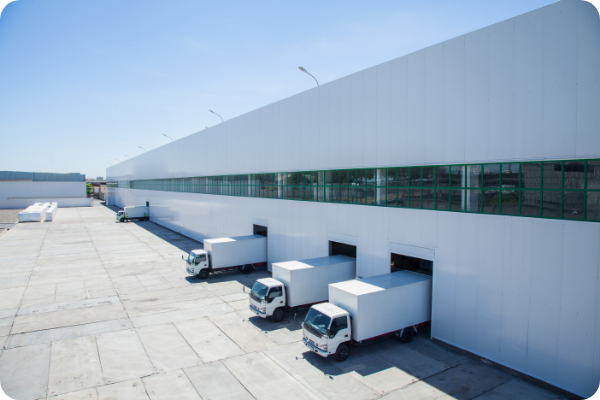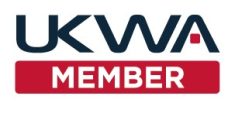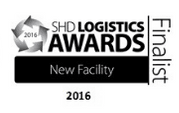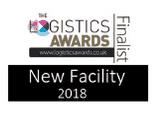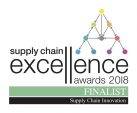The first step in deciding whether to insource or outsource warehousing and distribution is to define your exact operational goals after doing an in-depth analysis of your own particular current situation. Know what you are asking for. There are different levels of outsourcing available, not all will suit your requirements. You can consider one of these:
- A transactional relationship with a service provider with agreed deliverables but no long-term agreement
- A negotiated term agreement for the provision of services that also allows for the exchange and free flow of information
- A true partnership contract that defines the relationship and provides full visibility into each other’s operations with possible gainsharing
Insourcing can be an option
In some situations, it may be better to keep warehousing and distribution operations in-house. The main advantage is that you retain direct control of your facilities, inventory, processes and data and you control your own workforce. You may need highly specialised skills and equipment to run your distribution and there may not be suitable service providers that can fulfil your needs.
Another possible reason to keep your operations close is that it tends to give your key customers and other stakeholders the confidence that they are dealing with a single integrated and efficient organization.
Advantages of outsourcing your distribution
One of the main reasons cited for outsourcing is that you can focus on your core business and leave specialised services to the experts. Other “hard” reasons are the reduced need for capital investment in plant and equipment and possible savings in the cost of maintenance and repairs. There are other “softer” benefits that can’t be easily quantified such as less staffing headaches and not having to be an expert on the supporting technology.
- Experience and specialisation
Supply chain operations are not normally the main area of expertise for business owners and managers. Your outsource partner should have an established business with tried-and-tested processes and extensive in-depth knowledge of your industry and your market.
- Infrastructure and use of technology
Outsource third-party distribution companies (3PLs) have access to the latest I.T. systems and software. They will stay up-to-date with the latest developments in the field especially in information management and reporting. Your contracted 3PL will ensure your needs are met by using the fastest, most efficient, and cost-effective methods. Small companies cannot afford the level of investment needed.
- Continuous improvement
Eliminating inefficiencies and improving overall customer service is made possible by sharing both experiences and information. Openness between the customer and the supplier of services leads to receiving innovative ideas for improvement which can give your company a competitive edge.
- Flexibility and economies of scale
A 3PL can scale up or down resources as your business changes because he works in combination with the needs of other companies, usually on a 24/7 basis. Volumes fluctuate, some urgent requirements may be unplanned, and there will be seasonal variations in demand. Outsourcing can smooth out some of these headaches.
As you enter new markets or introduce new products your need for more distribution and warehousing services grows. Using an established 3PL who has other customers makes the transition easier and you can renegotiate your volume requirements and gain benefits from his economies of scale.
- Less capital expenditure
Acquiring warehousing space and infrastructure for distribution requires a large capital investment. It ties up capital that could be used for business expansion. Dedicated assets, including property, people and equipment, are expensive and are often under-utilised. When the facilities and resources are owned and operated by a third party, less capacity is wasted.
Other advantages
One practical benefit is that you can choose the location of your ideal distribution hub which may also be a cost-saving opportunity. With outsourced services, your third-party provider takes on the day-to-day risks associated with managing people and processes. You will have less administration and document processing and you will be handing over your Human Resources issues. Obviously, this comes at a price and must be weighed up against the insourcing option.
So what is the downside?
- Cost
If the main objective is to save costs you may be disappointed. Convenience comes at a price, the overall cost of outsourcing will probably be greater than if you managed it in-house. This may be offset by the benefits of speed to market and access to the latest technology.
- Loss of visibility and control
You are reliant on the competency and the ability of the 3PL and its staff to continuously deliver superior service. You must assume that they are working in your best interests. These types of problems can be mitigated by agreeing on how to measure success and including these metrics within the contract.
3. Reputational risk
The 3PL is responsible for one of the most critical functions of your business – customer service. Their mistakes, whether they are poor employment practices or lack of respect for the environment, reflect directly on you.
The contract should include at least 3 key performance indicators (KPIs) that you decide upon together with your provider. Where service delivery fails is when these measurements are not monitored on the agreed frequency, or the results are not acted upon.
For many growing companies, especially those in manufacturing, healthcare and fast-moving consumer goods, outsourcing distribution to a 3PL makes good sense. How effective is your sourcing process? Just do the required homework first.
The Supply Chain Consulting Group can help you to optimise your supply chain operations. We provide capacity and productivity solutions in fast-changing business environments.
Our directors are experienced logistics consultants who have worked closely with clients in a range of sectors and countries to improve or expand their warehouse and distribution centre facilities.

